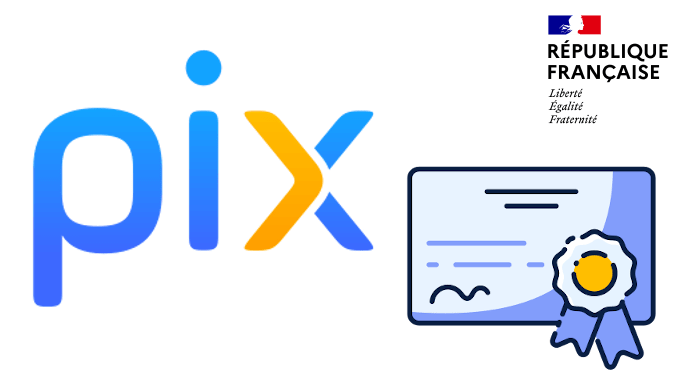PIX Certification: Develop your digital skills (Continuing education)

PIX is a public project for an online digital learning platform and face-to-face certification, free for students in the Faculty of Science. It will replace the brevet informatique et internet (B2i) and the certification informatique et internet niveau 1 from the start of the 2019 academic year.
What is Pix certification?
Its aim is to help raise the general level of digital knowledge and skills, and thus prepare for the digital transformation of our entire society and economy.
Pix is a public platform for assessing and certifying digital skills throughout life. Every citizen can obtain a "digital" profile ranging from beginner to expert level (1 to 8).
Training highlights
=> Training in cross-disciplinary skills to master the digital environment
=> All our trainers come from the University of Montpellier, are qualified and experienced, and are used to dealing with different levels of initial knowledge.
=> Learner entry level assessment test. Whatever your starting level, we offer basic (and/or advanced) computer training, enabling you to handle and manage the software that has become indispensable in your everyday and professional life.
=> Personalized follow-up throughout the training course, with 2 assessments prior to PIX certification.
Measure your digital skills
PIX enables users to obtain a skills profile associated with a global score out of 1024 PIX by completing activities on a national platform available 24/7. In line with the European DIGCOMP reference framework, PIX will assess 16 digital skills in 5 main areas:
D1 : Information and data :
- Research and monitor information to meet information needs and keep abreast of current events on a given subject;
- Store and organize data for retrieval, preservation, easy access and management;
- Apply processing to data to analyze and interpret it.
D2: Communication and collaboration :
- Interact with individuals and small groups in a variety of private and professional contexts, on an ad hoc and recurring basis;
- Share and publish information and content to communicate your own productions or opinions, relay those of others in a public communication context;
- Collaborate in a group to carry out a project, co-produce resources, knowledge and data, and to learn;
- Master the strategies and challenges of online presence, and choose your practices to position yourself as a social, economic and civic player in the digital world, in line with its rules, limits and potential, and in accordance with your values and/or objectives.
D3 : Content creation :
- Produce documents with a predominantly textual content to communicate ideas, report on and promote their work;
- Develop documents with multimedia content to create your own multimedia productions, enrich your text-based creations or create a transformative work;
- Adapt documents of all types to their intended use, and master the use of licenses to enable, facilitate and supervise their use in various contexts;
- Write programs and algorithms to meet a need and develop rich content.
D4 : Data protection and security :
- Securing equipment, communications and data to guard against attacks, traps, inconveniences and incidents that can impair the proper functioning of hardware, software, websites, and compromise transactions and data;
- Control your tracks and manage personal data to protect your privacy and that of others, and adopt an enlightened practice ;
- Prevent and limit the risks generated by digital technology on health, well-being and the environment, but also take advantage of its potential to promote personal development, care, inclusion in society and the quality of living conditions, for oneself and for others.
D5 : The digital environment :
- Install, configure and enhance a digital environment (hardware, tools, services) to provide a framework suited to the activities carried out, their context or values.
- Solving technical problems
The tests not only assess knowledge, but also know-how and the ability to identify digital issues.
Innovative assessment methods are proposed, going beyond the usual MCQ framework and favoring in silico measurement of skills based on activities carried out in their real digital environment: interaction, file manipulation, problem solving, creative production, peer assessment, etc.
If you've made progress, you can come back to the PIX platform to improve your profile.
Developing your digital skills
PIX's contribution to the development of each individual's skills is threefold:
- PIX allows you to learn by testing yourself. In fact, a large proportion of PIX tests are designed as challenges in which you develop your skills.
- Based on the test results, PIX will also offer targeted training recommendations.
- Teaching teams will be able to monitor the evolution of students' skills, and design customized training strategies.
To demonstrate progress in a continuous and stimulating way, users will have a secure personal account that will enable them to demonstrate their new skills at their own pace and throughout their lives.
Making the most of your digital skills
As an option, PIX offersa "certifying" mode, enabling you to obtain a reliable official certification recognized by the national education system, higher education and the professional world (CV), including at European level.
This supplementary test must be taken in a classroom under examination conditions.